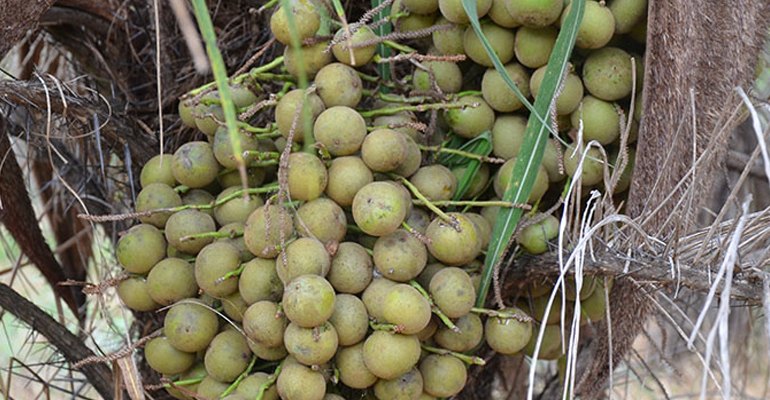FPT Industrial, a global powertrain brand of CNH Industrial N.V., a leader in the capital goods sector that, through its various businesses, designs, produces and sells agricultural and construction equipment, trucks, commercial vehicles, buses, and specialty vehicles, has invested in a production plan and tests dedicated to exploring Macaúba derived biodiesel, with a view to developing a potential new source of sustainable fuel.

Macaúba (Acrocomia aculeata), also known as macaw palm is a native palm tree to Brazil, the Caribbean, and southern Florida, US. It is a multipurpose plant that can be used in construction, medical and cosmetic industries. Recently, it’s use in the production of biodiesel is being investigated.
The research was conducted at the Technical Center in Betim, southeast Brazil, with the main focus on its application as a fuel for agricultural tractors. Tests for trucks and buses, as well as power generators, are planned for the future.
The macaúba oil used in the tests was extracted by Cooper Riachão, a rural producer’s cooperative in the region of Montes Claros, in Minas Gerais state. Following that, biodiesel was produced in an experimental plant by means of transesterification – a chemical reaction used to obtain biodiesel – and met the standards established by the National Agency of Petroleum, Natural Gas and Biofuels (ANP).
The project was carried out in partnership with the Pontifical Catholic University of Minas Gerais (PUC Minas), the Federal University of Minas Gerais (UFMG) and Bchem Biofuels, using an FPT Industrial N67 Tier 3 engine fitted to Case IH and New Holland Agriculture tractors.
During the tests, 10- and 20 percent blends of Macaúba biodiesel were used. The results showed performance and consumption comparable to Brazilian commercial diesel, with a reduction trend in terms of carbon monoxide (CO) and particulate matter (PM) emissions. This is further evidence of FPT Industrial’s commitment to exploring innovative sustainable fuels which could yield positive benefits.


